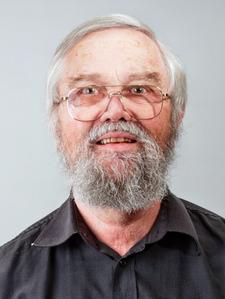On 1 January 1970 (an auspicious date for UNIX people), I was staying with a friend in
Worcester. His parents showed me an interesting flute, in good playable condition, and when
I showed I could play it and liked it, they gave it to me. I later found more things about
it: a year later I got a copy of Rockstro's “The flute”, in which I read:
646. Siccama's Patent Flutes. Abel Siccama was a teacher of languages in London,
and an amateur flute-player of very moderate capabilities. About the year 1842 he
conceived the unfortunate idea that he was destined to be the inventor of a new flute that
should eclipse everything that had been made or imagined. Having become imbued with this
notion, he set to work with all the vigour of an energetic nature. He had little
knowledge of the flute and less inventive genius, but he determined to bring out a flute
associated with his name and he did so.
Concerning the origin of this flue Mr. Carte kindly write to me as follows: “There is an
entry in my diary on the twenty-fifth of May, 1842, saying that I went to Siccama to see
the model of his new flute. Another entry, on the twenty-eighth, mentions Chittenden's
coming to me about it. It was he who went between us. A third entry, on the thirtieth of
the same month, relates to what passed between Rudall, Rose and myself on the subject. On
the second of June I find that Siccama met Rudall and Rose at my house, and, after making
the necessary promise of secrecy, they were shown the model, and talked over the matter,
which ended in their not thinking it worth future consideration. I was pleased with the
idea, but saw plainly that the thing would not do as it was. Siccama urged me to consider
it, and I took the flute with me to Newcastle, but shortly after returned it to him at his
desire. So much for the date of Siccama's first abortion.”
...
649 In addition to the ordinary eight keys, the diatonic flute has an open key over
the a hole, and a similar key over the e hole. Some the years afterwards, Siccama applied
a contrivance for improving the fork c" which, however, was of little use. ...
652 Although the errors and irregularities of the diatonic flute were numerous and
glaring, Siccama avoided the mistake of placing the holes generally too far apart,
consequently the upper and lower notes of the first and second octave were fairly well in
tune with each other, but the third octave was almost irredeemably bad.
...
My flute was made by Chapell of Bond Street and bears the serial number 1254. At one point
I thought that this made it one of the later models, but that was before I understood that
Siccama was the system and Chappell the maker. It has the “contrivance for improving the
fork c"'', which apparently was not very common. Nevertheless, it has a number of keys
mounted in wooden saddles, an earlier technology, though earlier Siccama instruments appear
to have had all keys mounted on pillars.
Unfortunately, it has suffered in the intervening time. Only a couple of years after I got
it, I managed to break the Bb key saddle off. More recently, one of the rings got bent, so
it is currently unplayable. Since 17 April 2001 it has been with
Terry McGee, who has researched the system and has been
restoring it. Here are some photos:












